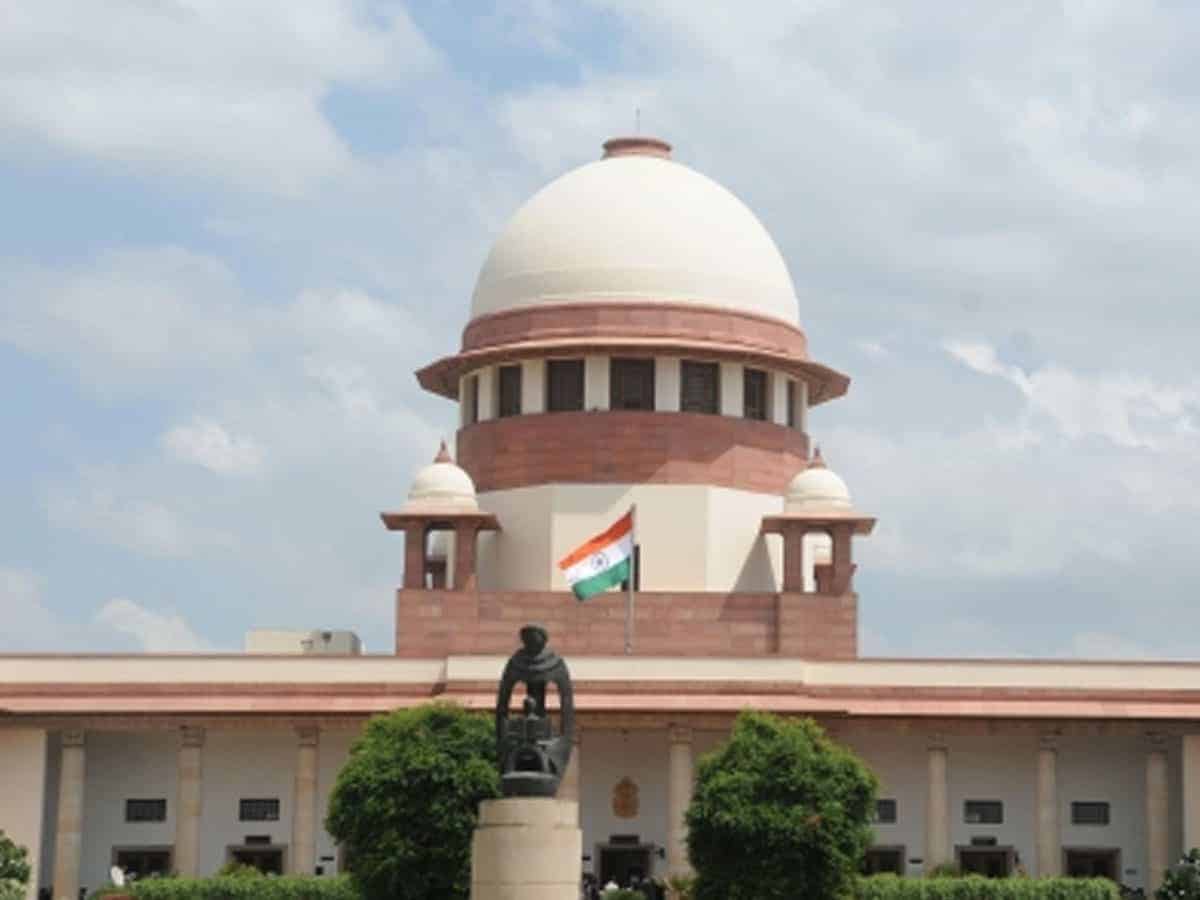
Delhi: The Supreme Court on Thursday concluded hearing the Centre’s response to challenges to the Electoral Bond Scheme. Solicitor General (SG) Tushar Mehta and Attorney General (AG) R. Venkataramani made their submissions to the court on several challenges that have been posed by the petitioners challenging the scheme.
Both the SG and AG emphasised that anonymity has a negative connotation as the scheme is designed to be confidential.
The AG submitted before the court that the Electoral Bonds Scheme treats all contributors equally. And the legislation should not be viewed in isolation.
“An isolated understanding of each legislation is fundamentally wrong. The one common thread in all is confidentiality. The scheme doesn’t violate any existing right of any person”, the AG said while answering the statutory challenges made to the RBI Act, Income Tax Act, Representation of People Act and the Companies Act.
He further asserted the importance of maintaining the contributors’ confidentiality.
He added that the scheme facilitates the system to move away from black money to a regulated scheme that serves public interest.
“The scheme is regulatory — which is in the broader concept of regulations under Art 19(2).
“We are moving from an unregulated system to a regulated system. One cannot say that I will look at each statute in isolation and call them into question,” the AG told the top court.
Speaking on the challenges saying that the scheme violates the fundamental right to know, the AG told the court, “We cannot accept a theory that a peripheral right which facilitates the exercise of a named fundamental right or gives it substance is itself a guaranteed right included with the named fundamental right.”
To this, the CJI replied that this logic had changed Puttaswamy’s judgment.
“There is no right to privacy expressly recognised under the Constitution but we read it in Right to life, dignity, preambular values etc.,” the CJI said.
SG Mehta in his submissions said that the top court has held informational privacy to be a fundamental right in the Puttaswamy judgment.
“Your lordships have devised the concept of informational privacy (in Puttaswamy judgment). Your lordships were examining two competent interests — one, right to know and right to have informational privacy. You have held informational privacy to be a fundamental right,” SG Mehta said.
While answering the challenge on selective anonymity, the SG also said that there was no way by which anyone could access information from the State Bank of India (SBI) without leaving traceable footprints. He asserted that the Centre cannot know the details of donations made through Electoral Bonds. He placed a letter signed by the chairman of SBI on this issue and said the details can’t be accessed without a court order.
On citizen’s right to know, the SG said that secrecy per se is not antithetical to free and fair elections. And it sometimes enhances free and fair elections like in the present case. He further asserted the scheme enhances free and fair elections as it shifts donations from cash to banking channels.
“Your lordships can accept my right of informational privacy as against the general right to know. If there is a genuine public interest in the disclosure, you go to the court. But merely for curiosity, you cannot invade someone’s privacy,” the SG said in the court.
On the right to know, the AG said that this is an instance of balancing between two kinds of freedoms — one negative and one positive freedom — this kind of balancing comes in when we have very important social considerations.
On the issue of selective anonymity, the SG explained to the court that the party that is receiving the funds knows who gave them, but no one else knows. And there cannot be a system where donors and one do not know.
Justice Khanna asked, “If this is so, why not make it open? As it is, everyone knows. The only person who is deprived is the voter.”
While listening to SG Mehta’s argument that the scheme is intended to reduce cash in the electoral process, the CJI said that there are five important considerations;
“1. The need to reduce the cash element in the electoral process; 2. The need to encourage the use of authorised banking channels; 3. Incentivising use of banking channels — by confidentiality; 4. Transparency; 5. Legitimisation of kickbacks.”
The scheme should not become a legitimisation of kickbacks and quid pro quo between the power centers and people who are benefactors of that power, the CJI remarked.
“It’s not that there is an either-or- that either you do this or go back entirely to cash. You can design another system which doesn’t have the flaws of this system — they put a premium on opacity,” the CJI further added.
The Constitutional bench concluded hearing the argument by the Centre on Thursday. Next, the petitioners will file their rejoinders on these arguments.
